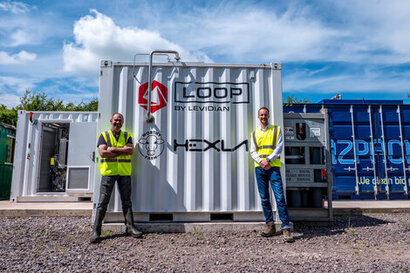
Home to the Glastonbury Festival, Worthy Farm currently produces power using an anaerobic digestion plant that turns tens of thousands of tonnes of cow slurry and waste silage into energy. The LOOP technology will allow the farm to capture the carbon from some of the biomethane produced as part of this process and turn it into super-material graphene and clean hydrogen, which will be used to generate electricity through the existing combined heat and power plant.
The installation is expected to deliver a saving of up to 25 tonnes of carbon dioxide equivalent each year, while the graphene will be sold as an additive to boost the performance of products as wide-ranging as batteries, concrete and plastics.
Hexla is providing funding to support the development of an industrial-scale LOOP1000 that will deliver the lowest cost clean hydrogen in the world over the lifetime of the plant as a result of the production of high-quality graphene. Hexla and Levidian have also agreed a Collaboration Agreement under which Hexla will become a global deployment partner of the LOOP technology with plans to deliver up to 300 LOOP1000 units that will drive down the emission of hundreds of thousands of tonnes of CO2e per year.
“Since early 2019, our team has been researching clean hydrogen production technologies around the world, so it is a great pleasure to be announcing what we expect to be the first of many successful deployments in conjunction with Levidian today” said Hexla Founder Andy Yeow. “The Levidian LOOP, with its unique solid carbon by-product of high-quality graphene, is the standout technology – from both a thermal efficiency and marginal cost basis – in an extremely competitive field. We are proud to be playing a key role in the scale-up of this truly game-changing technology and are focused on deploying it on an industrial scale to some of the most attractive hydrogen production markets in the world.”
For additional information:

